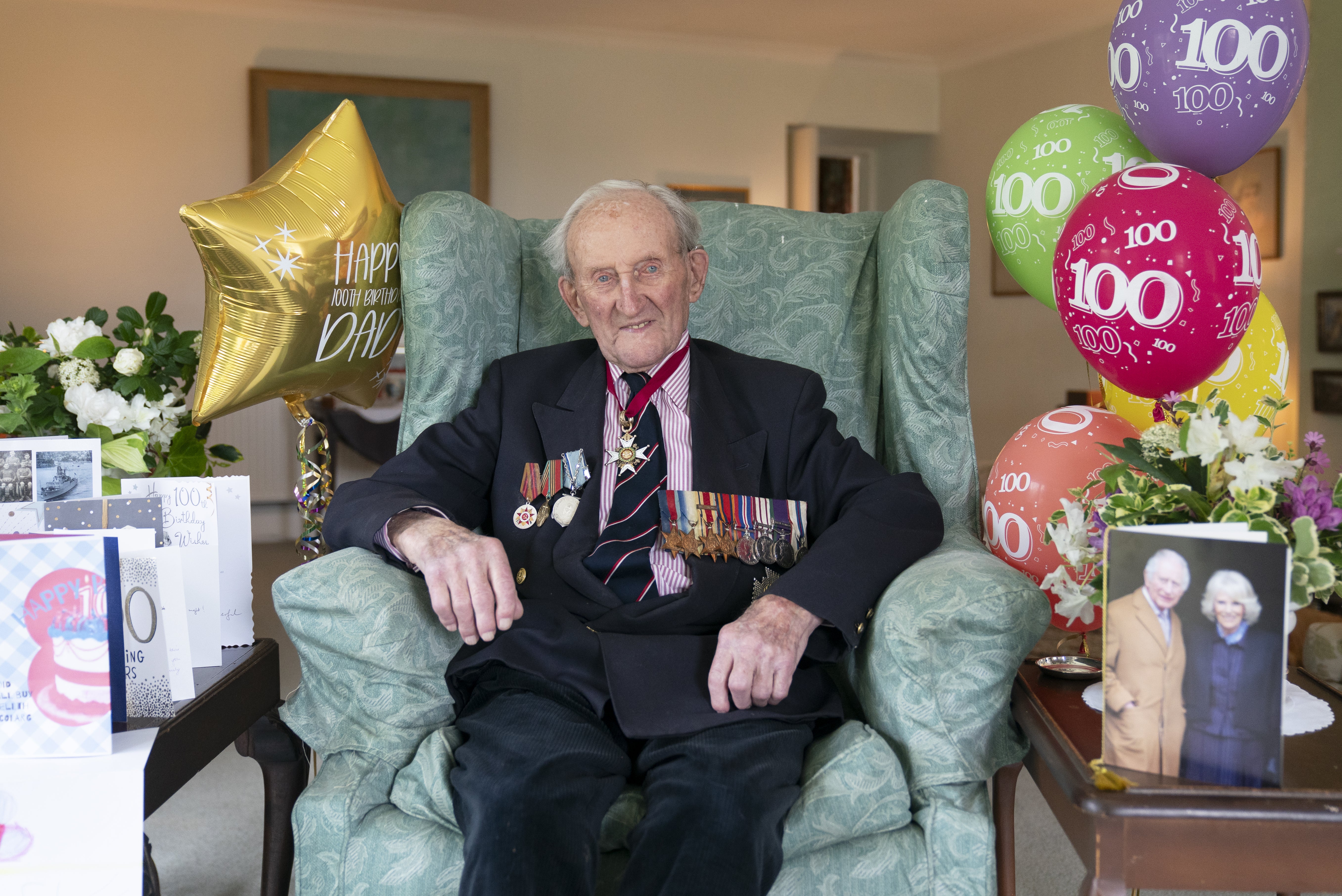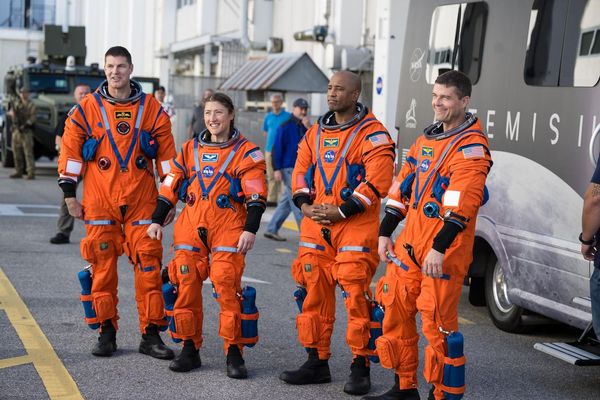
A former head of the Royal Navy in Scotland has recalled how he spent VE Day fearing the Second World War would continue for years in the Far East.
Vice-Admiral Sir Thomas Baird, 100, began his 41-year Navy career aged 17 when he served as a midshipman, a sailor of the lowest rank, on HMS Trinidad as part of the Arctic Convoy – a gesture of support to the Soviet Union in 1941 after Hitler breached a treaty of non-aggression made two years earlier.
On May 8 1945, VE Day, the 20-year-old was stationed on HMS Rapid, which had been in the Indian Ocean before it docked in South Africa for repairs.
He said sailors were anticipating conflict with Japan to continue for years.
Despite hearing radio broadcasts of VE Day celebrations in England, Sir Tom said his war continued until August 15, 1945 when Japan surrendered, days after atomic bombs were dropped on Hiroshima and Nagasaki.
He returned to the UK in September 1945 and said there were no celebrations when he arrived home.
Sir Tom said: “I was on board HMS Rapid on VE Day. From May 8, when war with Hitler finished, we were in the Indian Ocean. We weren’t expecting to come back for a few years or so.
“We listened to all the excitement in Britain when peace was declared – two princesses going out in London on their own, to join up with the crowds. There were no televisions for people like us.
“We got a wireless broadcast, the shouts of joy going on in London came back on the radio to us. I can’t remember any celebrations but imagine we did.
“They were all in peace at home having wonderful celebrations; we were going to be kept at war with the Japanese for probably another couple of years before we were released from the far-east Indian Ocean.
“What we didn’t know was the atomic bomb was going to be dropped – that was really good news for us. I was in Simon’s Town in South Africa, to get the ship repaired.
“Because we were at sea our radios worked, and we got all the excited people in England on our radio.
“World War II ended for us in August 1945. After Hiroshima, the Japanese leader surrendered. When the atomic bomb was dropped, that was good news for us.”

At the time, Lord Mountbatten was Supreme Allied Commander South East Asia Command and ordered the recapture of prisoners of war in Burma, Hong Kong and Singapore.
Sir Tom said: “Out in the Indian Ocean, we had no hope of getting back to England.
“When the atomic bomb was dropped by the Americans, nobody knew anything about it. The secret had been very well kept. None of us had any idea, out in the Indian Ocean, that war was going to cease all of a sudden.
“If we had known, we would have been much happier.
“We had a very large fleet in the Indian Ocean commanded by Lord Mountbatten, when the war in Japan stopped we were between India and Burma. The ships would be available to collect all the British and American PoWs who were very badly treated. Some weighed between six to eight stone. A lot of them died.”
Sir Tom was born in Canterbury, Kent, on May 17, 1924, and enrolled in Dartmouth College in Devon aged 13.
He turned 21 nine days after peace was declared in Europe.
His career peaked in 1979 when he became Flag Officer, Scotland and Northern Ireland – the head of the Royal Navy there – and hosted guests including US president Richard Nixon and diplomat Henry Kissinger.
Last month, Sir Tom was awarded a new medal by the consul general of Russia in Edinburgh, who visited his home in Symington. He had moved to South Ayrshire in 1965 after meeting wife Angela, and had two children, five grandchildren and 10 great-grandchildren.
Sir Tom said: “It is 80 years since peace was declared in Europe and Russia. He said he was going to present the medal to eight other people who were still alive.
“I’d always been friends with the Russians, they looked after us very well during the Arctic Convoy. I spent three months up there.
“I dealt with genuine people like myself who just did a job in the Russian navy or army.”
He added: “I enjoyed wartime and peacetime, and disliked both. We had happy times when the war was on, when the Germans weren’t making life difficult for us.”







